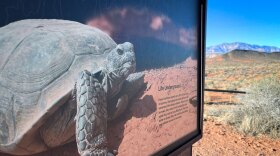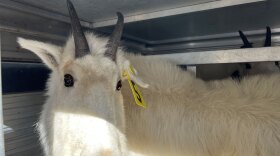-
The lawsuit argues the approval of the highway near St. George breaks multiple federal laws, including the act that established the Red Cliffs National Conservation Area.
-
Utah’s statewide snowpack level has reached a record low. Much of the West is in the grip of a snow drought, impacting everything from water supplies to mountain forests.
-
A new plant that cleans and recycles more sewage is another big step toward stretching Washington County’s limited water supply. It highlights the massive effort and big money it’ll take to keep the St. George area growing in the desert.
-
Four days of negotiations in a Salt Lake City conference room earlier in January did not appear to have sparked a breakthrough.
-
A plan to build a highway through the Red Cliffs National Conservation Area near St. George is back. But public lands law experts from across the country question if the Trump administration is missing Congress's original intention.
-
The contentious highway would run through Red Cliffs National Conservation Area near St. George, a landscape that’s home to the threatened Mojave Desert tortoise.
-
A large snowmaking upgrade has come in handy at Nordic Valley, but the resort is still hiring staff after many part-timers left for more reliable work.
-
The proposals range from taking "no action" to a scenario that might result in water cuts to the lower basin states of California, Nevada and Arizona. One alternative developed in partnership with conservation groups would incentivize proactive conservation of the river.
-
A 2020 law requires the Utah Division of Wildlife Resources to reduce the number of predators when big game populations are low. Conservationists, along with some hunters and outdoorsmen, are upset with the study.
-
Record 2025 temperatures show how climate change is affecting Utah, including the state’s water supply.
-
Tour buses, RVs and trailers that exceed size limits won’t be allowed on the Zion-Mt. Carmel Highway as of June 7.
-
Forecasting snow conditions in Utah’s mountains can be tricky, but accurate predictions are vital for everything from ski trips to avalanche safety. An AI forecast tool developed at the University of Utah might help.
-
Honey bees are considered domesticated livestock by the U.S. Department of Agriculture. Pollinators native to Utah, on the other hand, aren’t typically cared for by people.
-
The mountain goats took some time to warm up to their new neighbors, but now they’re getting along — and one even had a kid.














